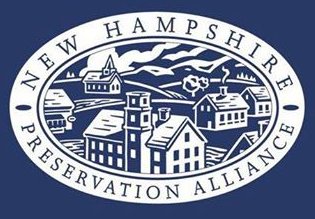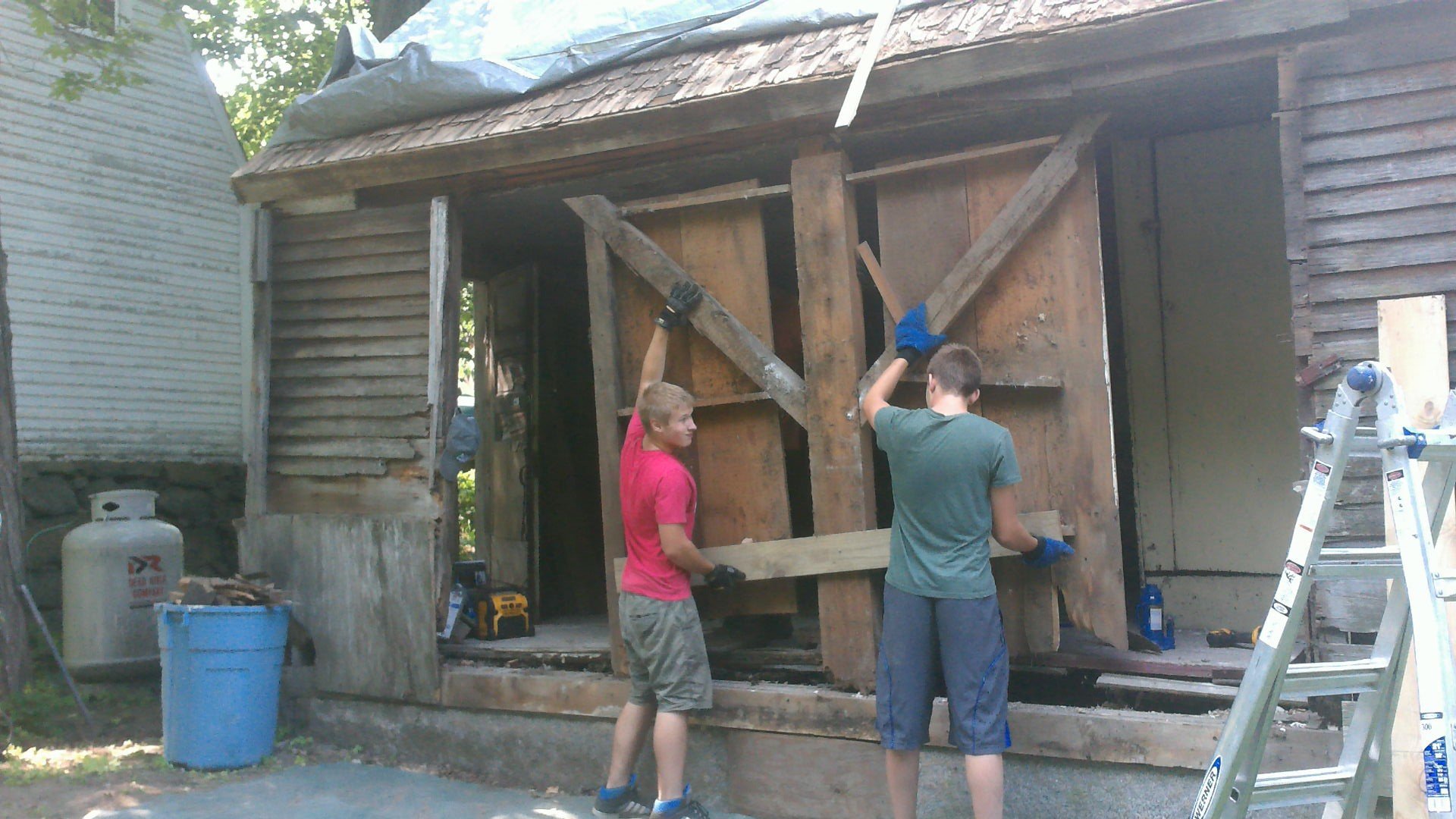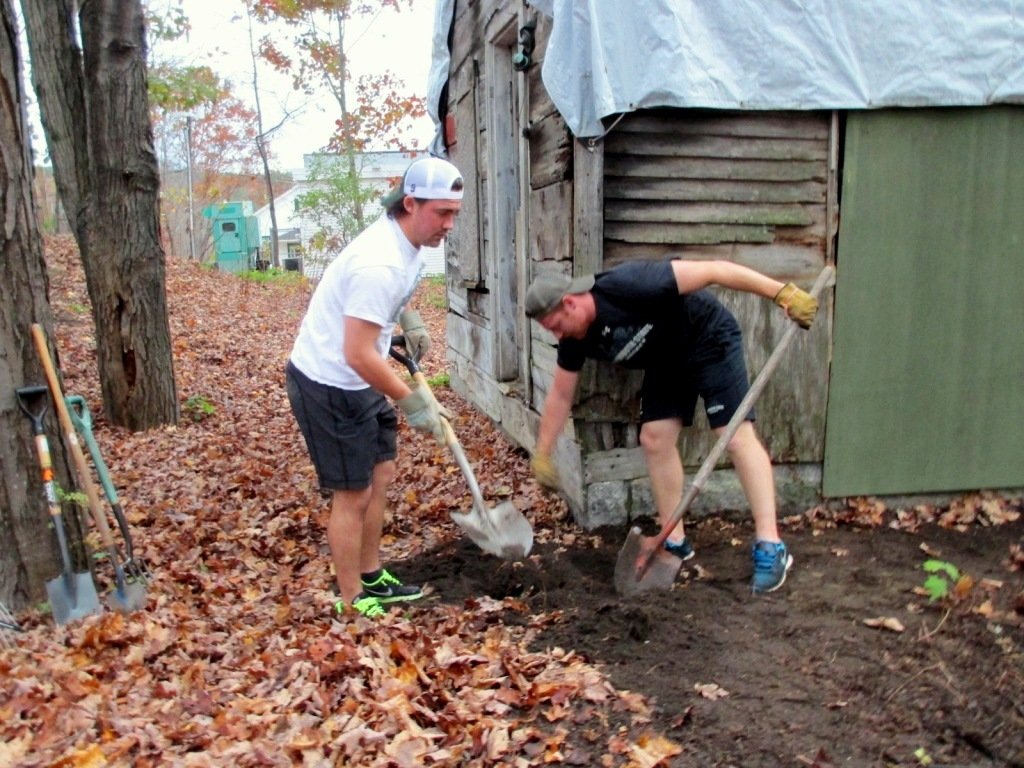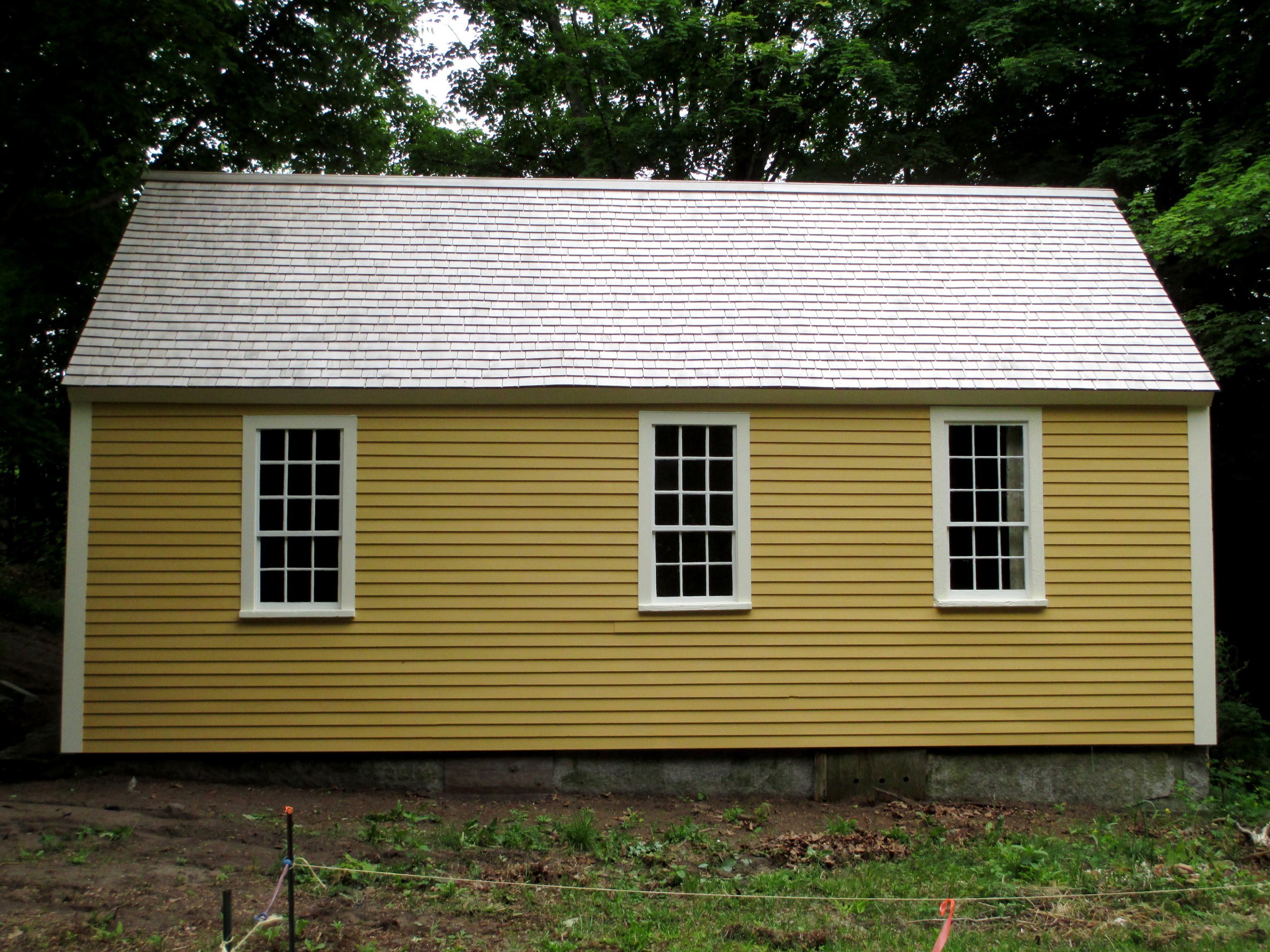2018 Preservation Achievement Award: Reuben Whitten House, Ashland
In 1815, Mount Tambora - a volcano on an Indonesian island - erupted with tremendous force. Its volcanic ash changed global temperatures and, thousands of miles away in New England, farmers struggled with a "year without a summer."
In Ashland (then a part of Holderness), a farming family somehow managed to grow their crops. Sally and Reuben Whitten decided to share 40 bushels of their wheat with 100 neighbors who were less fortunate, an act of generosity that was later recorded on a memorial stone by their grandson, in 1911.
The c.1800 house, however, stood more or less forgotten. It was moved in the 1870s from the hillside farm to the village for use as worker housing. In 1969 it was donated to the Historical Society, struck by a runaway truck, and moved again to a location behind the Whipple House Museum. With the 200th anniversary of the year without a summer approaching, the Ashland Historical Society decided it was time to pay it forward and embark on a rehabilitation campaign.
The largely volunteer effort was a lesson in perseverance. It took years of soliciting donations and grants, organizing work weekends, and researching the social history of the house. Thanks to a report by Jim Garvin (the former state architectural historian), the Society had a road map that guided their rehabilitation.
Work included listing the building to the State Register of Historic Places, repairing the hole in the wall created by the 1969 truck accident, repairing and reconstructing the windows, cladding the exterior with clapboards, adding a cedar shake roof, and finding a more period-appropriate door. The interior was left untouched, having retained much of its original fabric, despite a century of housing tenants.
The result is the rehabilitation of a humble house that tells a big story. According to co-chairs of the Whitten Project Committee, Katie Maher and Susan Macleod, the house represents the layers of Ashland's history, from its farming days to its use as worker housing after the town industrialized. "This little house holds those human stories and artifacts within its walls," they shared at the Awards ceremony.
And now the little house will reflect another story, that of a town coming together to honor the good deed of a family over two hundred years ago.
Partners included:
Ashland Historical Society
James L. Garvin
Starck Housejoiners, Inc.
Ashland Lumber / Belletetes
Sippican Partners


















